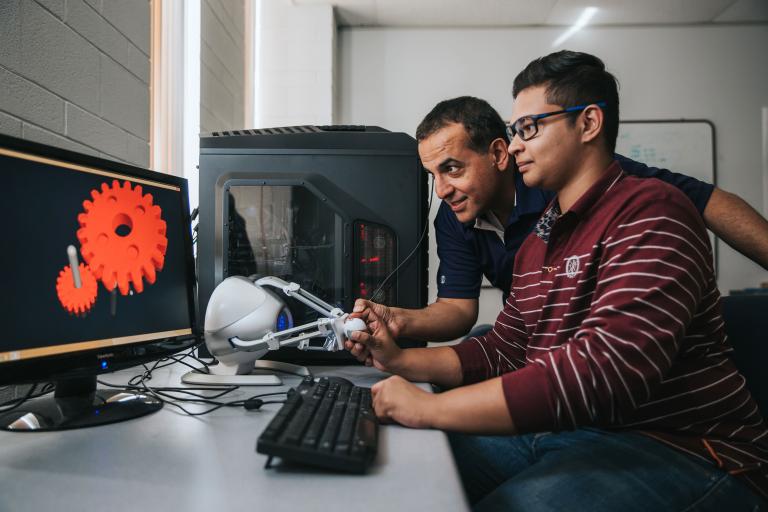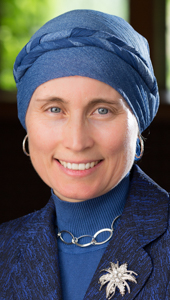
“It helps graduating Ph.D. engineering students build a bridge to great jobs, but it also helps researchers that have been disrupted at universities have great talent and fresh minds to come and help move the research forward.”
Kettering University alumna Dr. Jacqueline El-Sayed (‘86, ME), who works as the Chief Academic Officer and Managing Director for the American Society for Engineering Education (ASEE), received an $18.4 million grant from the National Science Foundation to support the ASEE’s eFellows engineering postdoctoral fellowship program.
 “The whole idea is to keep these PhDs working in their technical fields,” El-Sayed said. “You don’t want to lose them out of their technical fields; we need these minds.”
“The whole idea is to keep these PhDs working in their technical fields,” El-Sayed said. “You don’t want to lose them out of their technical fields; we need these minds.”
The eFellows program places students who have completed their PhDs in engineering fields between Jan. 1, 2019, and Aug. 31, 2021, in university postdoctoral fellowships. They will participate in hands-on academic research with a faculty advisor as well as professional development and mentoring activities. The two-year program provides fellows with a salary of $75,000 a year.
“With COVID, there aren’t as many jobs, so this helps them bridge across this in order to be able to improve their skills and provide research support,” El-Sayed said.
El-Sayed not only graduated from Kettering, she also is a former employee. She spent nearly 18 years at the University as a Mechanical Engineering professor. In addition, she served in various roles including Director of the Center for Excellence in Teaching & Learning, Associate Vice President for Academic Affairs and Associate Provost. She has been with ASEE for a year and a half.
“I’m really enjoying what I’m doing,” El-Sayed said. “… The great thing about ASEE is that we are working at a national level across all engineering education, and because of that, it’s just a lot of fun to be able to make things happen at a national level.”
The idea for the program came after El-Sayed and her team had put together special online resources to support engineering students and faculty during COVID. With the downturn of the economy, they mirrored the eFellows program off of a similar program created after the economic crash of 2008 for those in the computer science industry.
“The fact that it worked so well in 2008, we felt it would work great for engineering post-doctorates, and just like the computer information fellows, keep them in their technical field,” El-Sayed said.
In addition to helping the students, she said it also will help the participating universities as they also were hit in various ways by the pandemic including layoffs and lost research. To be eligible to participate in the program, complete their fellowships at a U.S. institution, which El-Sayed said is important because it helps keep the United States competitive in technological innovation.
“It helps graduating Ph.D. engineering students build a bridge to great jobs, but it also helps researchers that have been disrupted at universities have great talent and fresh minds to come and help move the research forward,” she said.